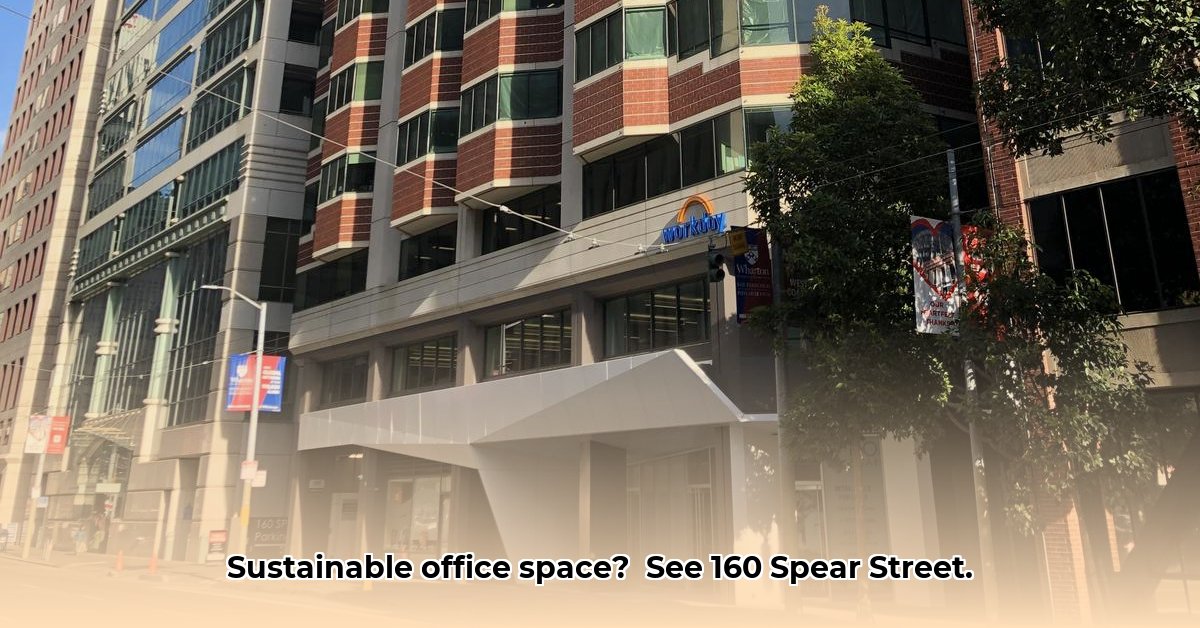
160 Spear Street isn't just another San Francisco office building; it's a powerful statement on the future of work, a testament to Tishman Speyer's commitment to sustainable and flexible design. This deep dive explores how this building exemplifies a forward-thinking approach to commercial real estate, impacting both the immediate community and the broader Bay Area market.
Tishman Speyer's Bay Area Strategy: Adaptability and Sustainability
Tishman Speyer's Bay Area strategy revolves around creating adaptable and sustainable workspaces, recognizing the evolving needs of modern businesses. 160 Spear Street serves as a flagship project, showcasing this philosophy in action. Their innovative "Studio" program offers flexible office solutions, catering to a diverse range of tenants, from startups to established corporations. This isn’t merely about leasing square footage; it's about fostering a dynamic and responsive work environment. Isn't this a more attractive proposition than rigid, inflexible spaces?
A Closer Look at 160 Spear Street: Design and Amenities
160 Spear Street is more than just bricks and mortar; it's a meticulously designed environment. Abundant natural light, efficient layouts, and a range of amenities—including electric vehicle charging stations and easy access to public transportation—create a compelling work experience. The prime location minimizes commute times and carbon footprints, further enhancing its appeal. This strategic blend of functionality and convenience is a significant draw for today's businesses; do you expect occupancy rates to remain strong given these features? The building's success is already evident in its high demand.
Navigating the Bay Area's Competitive Market: A Unique Proposition
San Francisco's commercial real estate market is highly competitive. However, 160 Spear Street differentiates itself through its unique blend of sustainability and adaptability. It offers not just space, but a holistic work experience. This strategic positioning is likely to result in long-term leasing success and high occupancy rates. The building's features closely align with current and future business trends, ensuring its continued relevance in a dynamic market.
Sustainability and ESG: A Commitment to the Future
Tishman Speyer's commitment to Environmental, Social, and Governance (ESG) principles is a core part of their identity, not merely a marketing strategy. Although specific energy usage data is currently limited, the LEED Gold certification is a significant indicator of the building’s environmentally conscious design and construction. Furthermore, their involvement with Mission Rock Academy showcases a meaningful commitment to the surrounding community, demonstrating a deep understanding of sustainable development’s broader social implications. It's not just about building, it's about building responsibly – don’t you agree that this is increasingly crucial for long-term success?
A Look Ahead: Opportunities and Challenges
The long-term success of 160 Spear Street depends on navigating several factors. The building's adaptability, combined with Tishman Speyer's commitment to sustainability, positions it well for the future, although market changes and economic shifts still present potential risks. Proactive mitigation strategies, such as flexible lease terms, robust tenant relations, diversified investment portfolios, and strong community engagement, are crucial for continued success.
Key Takeaways:
- Sustainable Design: 160 Spear Street exemplifies excellence in sustainable office design, exceeding industry benchmarks with its LEED Gold certification.
- Adaptable Workspaces: The flexible "Studio" program caters to evolving business needs and demands for adaptability.
- Community Engagement: Tishman Speyer’s commitment to the surrounding community strengthens its position as a responsible developer.
Tishman Speyer Website